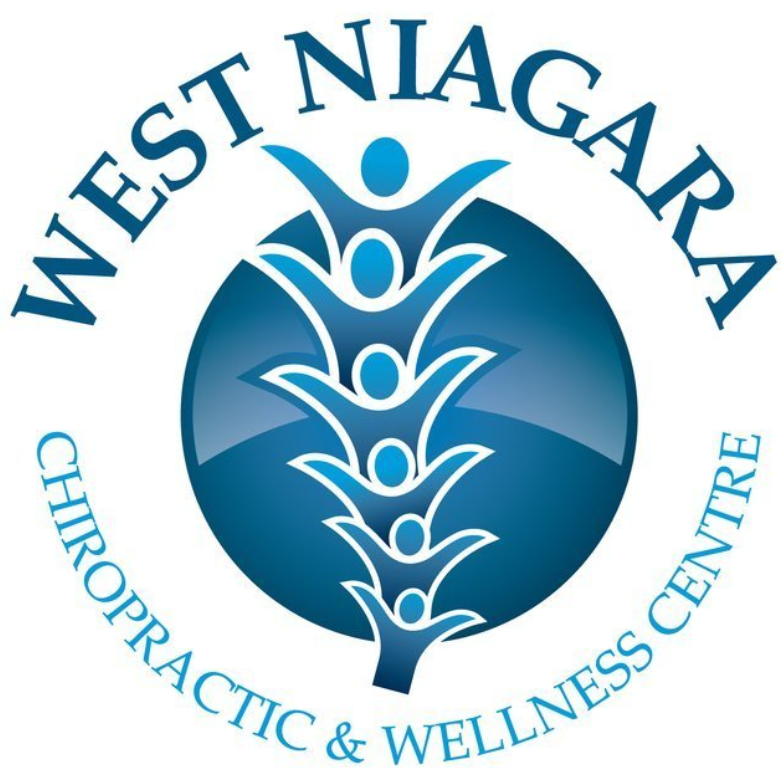Beyond the Basics of Healthcare Holistic Care for Wellness Seekers
In today's fast-paced world, many health enthusiasts are turning to holistic care as a comprehensive approach to wellness. Unlike traditional healthcare, which often focuses on symptom treatment, holistic care emphasizes the whole person—mind, body, and spirit. At the heart of this philosophy is the belief that true health goes beyond the physical and encompasses mental and emotional well-being. This blog will explore how holistic care is practiced, offering insights, practical tips, and examples for those eager to integrate this approach into their own lives.

Understanding Holistic Care
Holistic care is an all-encompassing approach to health that considers the person as a whole entity. It recognizes that ailments are not isolated incidents but can be manifestations of deeper, interconnected issues. This method aims to achieve balance in all aspects of one’s life, from physical health to mental clarity and
emotional stability.
A key facet of holistic care is prevention. By maintaining balance and harmony within the body, individuals can prevent illnesses before they occur. This proactive stance is what sets holistic care apart from more reactive medical approaches. Tailored to each individual, holistic care plans are designed to meet personal needs, thus ensuring that every aspect of well-being is addressed.
Holistic care practitioners focus on treating the root cause of a condition rather than just the symptoms. By doing so, they aim to achieve long-term health benefits. This involves understanding the unique lifestyle, environment, and emotional factors impacting an individual’s health. By addressing these, practitioners can create a more effective, sustainable health strategy.
The Principles of Holistic Care
Holistic care is founded on several core principles that guide its practice. These principles emphasize the integration of mind and body, the importance of natural healing, and the involvement of patients in their own care.
One of the primary principles is the integration of mind and body. Holistic care acknowledges the connection between mental and physical health, understanding that mental health can greatly influence physical well-being and vice versa. This principle is reflected in practices like mindfulness, which promote mental wellness and, in turn, improve physical health.
Another principle is the emphasis on natural healing. Holistic care encourages the use of natural remedies and treatments that harness the body’s innate healing power. This could include herbal medicine, acupuncture, and other alternative therapies that work with the body’s natural processes to promote healing.
Lastly, holistic care involves patients actively in their own health care. It empowers individuals to take charge of their health by making informed lifestyle choices and engaging in preventive practices. This involvement increases the likelihood of positive health outcomes and strengthens the patient-practitioner relationship.
Practices in Holistic Care
Holistic care encompasses a broad array of practices aimed at promoting overall well-being. These practices can be categorized into three main areas: physical therapies, mental and emotional wellness, and lifestyle and environmental adjustments.
Physical therapies in holistic care often include activities like yoga, tai chi, and chiropractic care. These practices focus on improving physical strength, flexibility, and alignment, all while promoting relaxation and reducing stress. Places like the West Niagara Chiropractic and Wellness Centre offer such services, aligning the body to facilitate optimal health.
Mental and emotional wellness practices often involve meditation, counselling, and journaling. These activities enable individuals to process emotions, reduce stress, and improve mental clarity. By fostering a positive mental state, holistic care practitioners believe that physical health can be significantly enhanced.
Lifestyle and environmental adjustments are also crucial in holistic care. This includes dietary changes, like the inclusion of organic foods, and creating a home environment that promotes relaxation and well-being. By making these adjustments, individuals can create a supportive environment that fosters health and wellness.
Integrating Holistic Care into Daily Life
Incorporating holistic care into daily life requires commitment and mindfulness, but the benefits can be substantial. This integration begins with a shift in mindset from treating symptoms to promoting overall health.
One way to start is by setting aside time each day for practices like meditation or yoga. These activities not only build physical strength but also foster mental clarity and emotional balance. Committing to even a few minutes each day can create a foundation for a holistic lifestyle.
Another step is to evaluate your diet and make healthier choices. Incorporating more fruits and vegetables, reducing processed foods, and considering organic options can have a profound impact on overall health. Small, consistent changes in diet can lead to significant improvements over time.
Finally, consider your environment and its impact on your well-being. Simple changes, like introducing plants into your living space or creating a dedicated relaxation area, can enhance your quality of life. These adjustments support a holistic lifestyle by promoting a calm and nurturing environment.
The Role of Practitioners in Holistic Care
Practitioners play a crucial role in the practice of holistic care. They are not just health providers but partners in the patient’s wellness journey. Their role extends beyond diagnosis and treatment to education, support, and empowerment.
Holistic care practitioners often spend more time with patients to understand their unique circumstances and provide personalized care. This patient-centred approach fosters a strong therapeutic relationship that is pivotal in achieving positive health outcomes.
Additionally, practitioners educate patients on various aspects of self-care and preventive health. By imparting knowledge, they empower individuals to take control of their health and make informed decisions. This collaborative effort enhances the effectiveness of holistic care practices.
Practitioners also offer a range of therapies tailored to individual needs, from massage and acupuncture to nutritional counselling and chiropractic care. Facilities like West Niagara Chiropractic and Wellness Centre provide comprehensive services that align with the principles of holistic care, supporting patients in achieving their health goals.
Benefits of Holistic Care
Holistic care offers numerous benefits that attract wellness seekers and health enthusiasts. These benefits go beyond physical health to encompass mental and emotional well-being.
One of the primary benefits is improved overall health. By addressing the root causes of health issues and promoting balance, holistic care enhances the body’s natural ability to heal and thrive. This leads to increased energy, better immune function, and a greater sense of well-being.
Holistic care also supports mental and emotional health. Practices like meditation and mindfulness reduce stress, improve mood, and enhance mental clarity. This holistic approach to mental wellness complements physical health, resulting in a more balanced and fulfilling life.
Additionally, holistic care fosters a sense of empowerment and self-awareness. By involving individuals in their own health care, it encourages informed decision-making and lifestyle changes that promote long-term well-being. This empowerment leads to a greater sense of control over one’s health and life.
Challenges in Practicing Holistic Care
Despite its benefits, practicing holistic care presents certain challenges. These challenges can arise from misconceptions, lack of access to qualified practitioners, and the commitment required for lifestyle changes.
A common misconception is that holistic care is not based on scientific principles. While some practices are rooted in traditional medicine, many aspects of holistic care are supported by scientific research. Overcoming this challenge involves educating the public about the evidence-based benefits of holistic care practices.
Access to qualified practitioners can also be a barrier for individuals seeking holistic care. In some areas, there may be limited availability of professionals trained in holistic methods. Seeking out reputable centers or practitioners, such as those at the West Niagara Chiropractic and Wellness Centre, can help individuals find the right support.
Finally, incorporating holistic care into daily life requires commitment and consistency. Lifestyle changes, dietary adjustments, and regular engagement in wellness practices demand effort and dedication. However, the long-term benefits often outweigh the initial challenges, making the practice of holistic care a
rewarding endeavour.
Exploring Holistic Care Centers
For individuals interested in exploring holistic care, visiting a specialized wellness center can provide valuable insights and support. These centers offer a variety of services and therapies tailored to meet individual needs.
Holistic care centers often have a team of experts specializing in areas like nutrition, chiropractic care, acupuncture, and mental wellness. This multidisciplinary approach ensures that individuals receive comprehensive and personalized care.
Visiting a center like the West Niagara Chiropractic and Wellness Centre allows individuals to experience a range of holistic therapies in one place. These centers provide an opportunity to learn about different practices, receive professional guidance, and connect with a community of like-minded individuals.
By exploring holistic care centers, individuals can discover new ways to enhance their health and well-being, gaining access to resources and support that facilitate their wellness journeys. West Niagara Chiropractic and Wellness Centre’s staff is here to help you in your wellness journey.
Holistic Care in the Modern World
In today’s modern world, where technology and fast-paced living dominate daily life, holistic care offers a refreshing and balanced approach to health. It reminds individuals of the importance of nurturing all aspects of their being.
Holistic care encourages individuals to slow down, take notice of their bodies, and make mindful choices. This awareness helps them manage stress, prioritize self-care, and maintain balance in a rapidly changing world.
Furthermore, holistic care aligns with the growing trend of personalized medicine. By focusing on the individual, it addresses unique needs and preferences, providing customized solutions that enhance health outcomes.
Incorporating holistic care into modern living enables individuals to achieve a greater sense of harmony and well-being. It offers a path to health that embraces the complexities of the human experience and supports a more fulfilling life.
The Future of Holistic Care
The future of holistic care is bright as more people recognize its benefits and seek integrative approaches to health. Holistic care is expected to play an increasingly prominent role in healthcare as individuals prioritize preventive measures and comprehensive wellness strategies.
Advancements in technology are likely to enhance the accessibility and effectiveness of holistic care. From online consultations to personalized wellness apps, technology will enable more people to engage in holistic practices and access expert guidance.
The integration of holistic care into mainstream healthcare is also anticipated. Collaboration between conventional medical practitioners and holistic care providers can lead to more comprehensive and effective treatment plans.
As the demand for holistic care grows, individuals and practitioners alike will benefit from continued research, innovation, and collaboration. This evolution promises a future where holistic care is a standard component of health and wellness strategies worldwide.
Holistic care offers a comprehensive and empowering approach to health and wellness, appealing to health enthusiasts and wellness seekers alike. By addressing the whole person—mind, body, and spirit—holistic care promotes balance, prevention, and long-term well-being.
The practice of holistic care involves integrating core principles, exploring diverse therapies, and committing to lifestyle changes that support health. While challenges exist, the benefits of holistic care make it a valuable path to wellness in today’s modern world.
For those interested in exploring holistic care, centers like the West Niagara Chiropractic and Wellness Centre provide a range of services that align with holistic principles. By visiting these centers, individuals can experience personalized, expert care that supports their unique health journeys.
Ultimately, holistic care empowers individuals to take control of their health, fostering a sense of harmony and fulfillment that enhances their quality of life. Through mindful practices, informed decisions, and a commitment to well-being, holistic care offers a path to true, holistic health.
West Niagara Chiropractic and Wellness Centre
17 Ontario Street, Grimsby
(905) 945-3730












